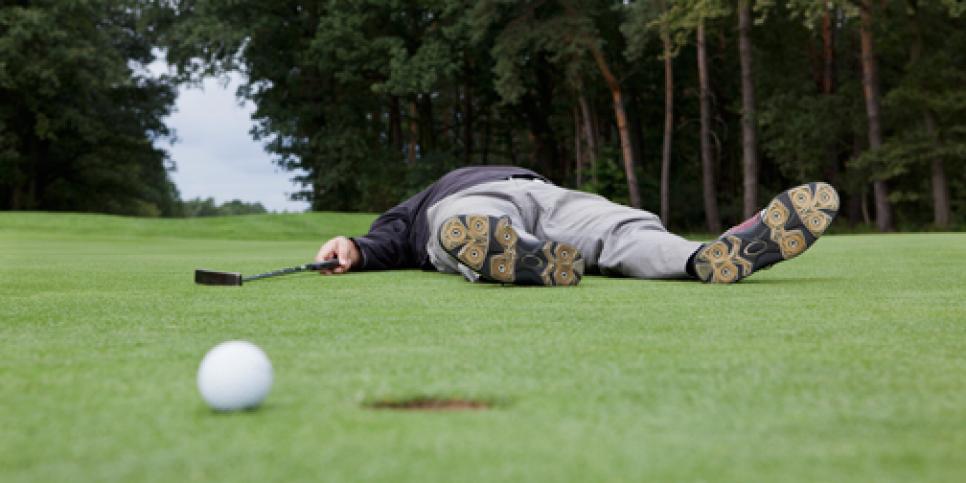The Loop
How I choked away another good round, and what you can learn from it
On Thursday, after I got up and down for another par, my colleague Luke Kerr-Dineen glanced at the scorecard and offered an update.
"If you par in," he announced, "you break 80."
So what if this was ridiculous, as logical a hypothetical as, "If you won the electoral college, you'd be President." The point is, Luke had breathed life into something I had hoped to avoid. And from that point on, everything changed.
I shot 85.

Halfdark
What happens to golfers when they start giving conscious thought to something that had been blessedly subconscious before? Why do so many of us fall apart once we venture outside of our comfort zone? And more importantly, is there anything we can do about it?
Thankfully, yes, said Matt Cuccaro, a Hilton Head Island, S.C.-based sports psychologist who works with a number of players on the PGA, Champions, and LPGA Tours. For starters, my mistake was trying to suppress thoughts of how well the round was going. Sure, the pressure increases when your expectations grow, but Cuccaro says that should be the fun part.
"When someone embraces a challenge, they accept it's going to be tough and they say, 'I'm going to go for it.'" Cuccaro said. "The reason why we play isn't to be all calm, cool and collected. If that's the way we want to be, we'd be better off sitting at home on the couch."
Which is not to say I should have been lining up every shot only thinking about a record score. Like many sports psychologists, Cuccaro is a proponent of routine. Concentrating on breathing, particularly when exhaling, is a proven way to relieve tension. And when my mind started to dwell on mechanics -- Why am I driving it so straight today? Is it because I'm tucking my elbow in? What if I stop doing that? -- Cuccaro said I should start homing in on a specific target.
"We aren't consumed with the body if we are focused on something external," he said.
Lastly, Cuccaro said there are ways through practice to prepare oneself for such moments. He compares it to strength training. Just as you get stronger by lifting weights that are beyond your comfort level, a golfer benefits by consistently putting himself in stressful positions. It's why Phil Mickelson forces himself to make 100 3-footers at the end of a practice session, or why I try to pretend my final drive on the range is an opening tee shot in the Ryder Cup. The more you put yourself under the gun, the better your chances of responding favorably.
"Anything that gets your ticker going is good practice in stretching your comfort zone," Cuccaro said.
In other words, as much as my collapse on Thursday felt like a failure, it should only help me down the line. At least that's what I'm going with the next time I'm feeling the heat.

.jpg)